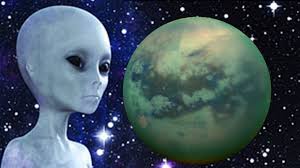Life might have been carried to our satellite on a meteorite
The Moon might once have been home to aliens.
Extraterrestrial life might have made its way to our nearest neighbour after a meteorite blast, scientists have suggested. And when it did, the atmosphere might have been far more habitable than it is today, ready to support life, if only briefly.
That is according to two senior planetary researchers who found that the Moon might have had conditions to support simple lifeforms some four billion years ago. The same conditions might have arrived during a peak of volcanic activity 3.5 billion years ago, claim the researchers.
During that time, the Moon was spewing out vast amounts of very hot gases, including water vapour. Those gases might have formed into liquid water on the surface as well as creating an atmosphere that could keep it there.
“If liquid water and a significant atmosphere were present on the early Moon for long periods of time, we think the lunar surface would have been at least transiently habitable,” said Dirk Schulze-Makuch, an astrobiologist at Washington State University, who wrote the paper with Ian Crawford, a professor of planetary science and astrobiology at the University of London.
The Moon is also thought to have been wrapped in a magnetic field that would have kept any lifeforms who lived there safe from deadly solar winds.
The earliest evidence of life on Earth comes from about 3.5 and 3.8 billion years old, in the form of cyanobacteria. During that time, the solar system was a violent place marked by frequent meteorite impacts – it is possible that some life could have been carried up to the moon in the wake of one of those blasts, the researchers suggest.
“It looks very much like the Moon was habitable at this time,” Mr Schulze-Makuch said. “There could have actually been microbes thriving in water pools on the Moon until the surface became dry and dead.”
The researchers now hope that the speculation will encourage Nasa and other space agencies to undertake an “aggressive future program of lunar exploration”. That could examine moon deposits from the period to find if they include signs of life, or simulating the conditions of the early Moon on Earth or the International Space Station, to see whether life could exist there.
The Independent
 Lebanese Ministry of Information
Lebanese Ministry of Information



